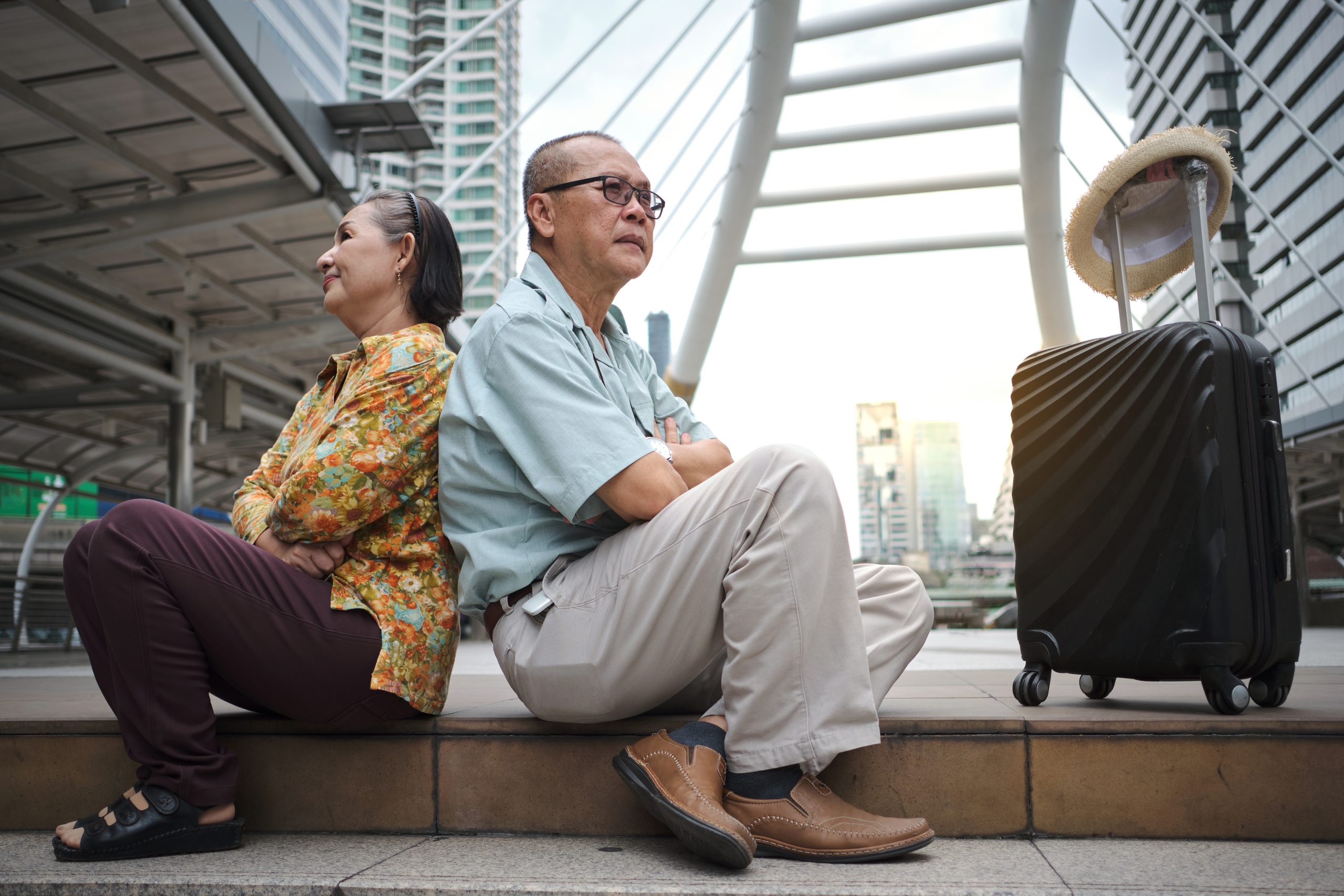Picture two travellers in the days before leaving on a trip. This may be a journey backpacking in the Andes, a month in Europe, a weekend in Vegas or camping for the long weekend, it doesn’t matter. But let’s say they’re packing.
One creates a detailed list, makes sure everything is clean, and maybe even starts packing a week before they leave. Call this person Traveller A. Then we have Traveller B, the person who on the day of departure realizes they have no underpants so does a fast load of laundry, then tosses three items in a duffel on the way out the door.
And to make it really fun, these people inevitably marry each other and spawn smaller versions of themselves.
So how do you make the A’s and B’s of the world happy to travel the world together?
Let’s talk about Traveller A & Traveller B’s Packing habits.
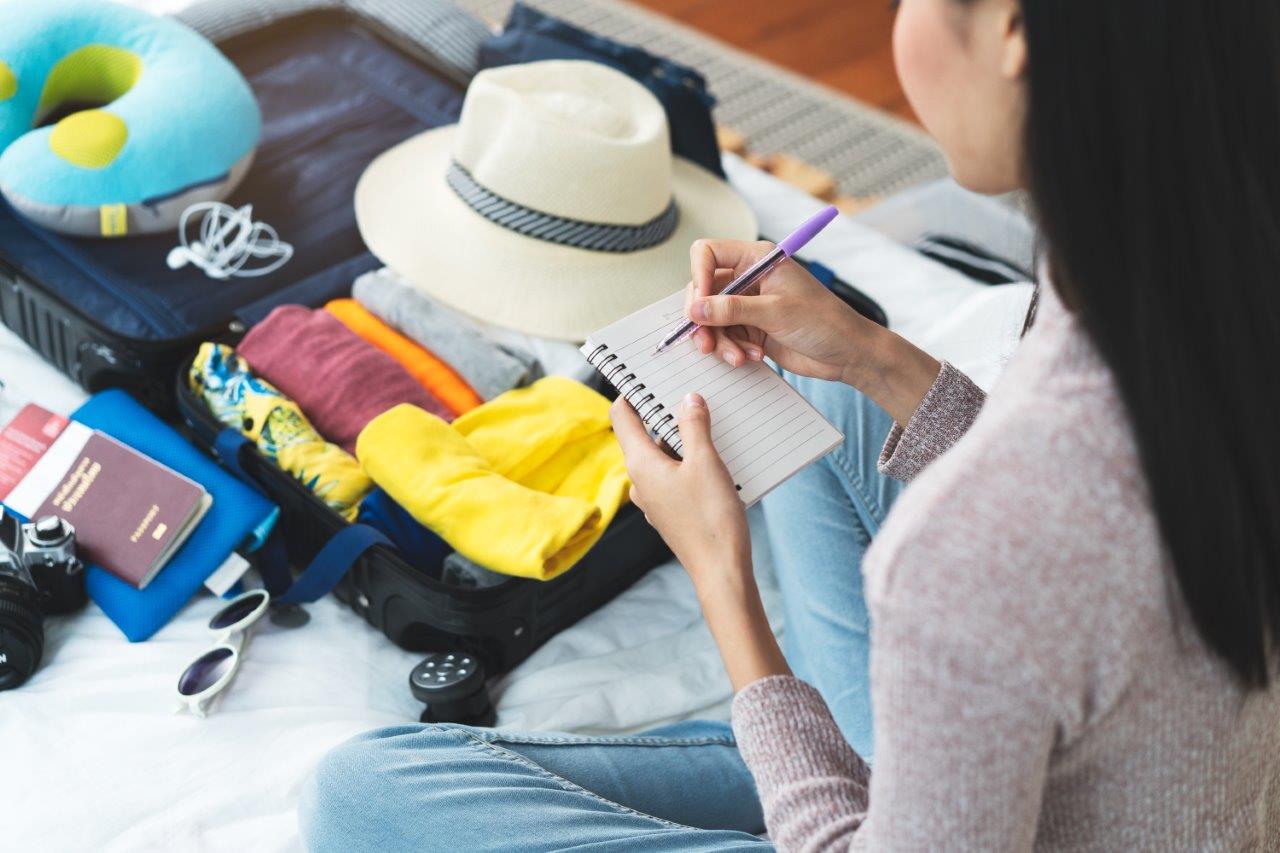
Make the packing list and check it twice, Traveller A!
Traveller A has the right idea, especially with young children in the mix. Make lists, check them twice and Traveller B must learn to take on some of the load.
How? Assign children to a specific parent, then you are in charge of packing yourself and at least one child. And it’s never too early to teach kids to pack themselves. Younger kids (mine started at 5) will understand if you break it out into smaller manageable tasks.
- We are going away for 3 nights – how many PJs will you need?
- How many pairs of underwear?
- What shoes might you need if we are going to be walking around Disneyland?
- There is a pool at the hotel, what do you need for swimming?”
The kids can lay out all their items on the bed for you to review as you help them pack their bag. Bonus points if they can carry/pull it themselves. Helping kids learn to pack is a valuable life skill for them and, as they get more independent, a stress reliever for you.
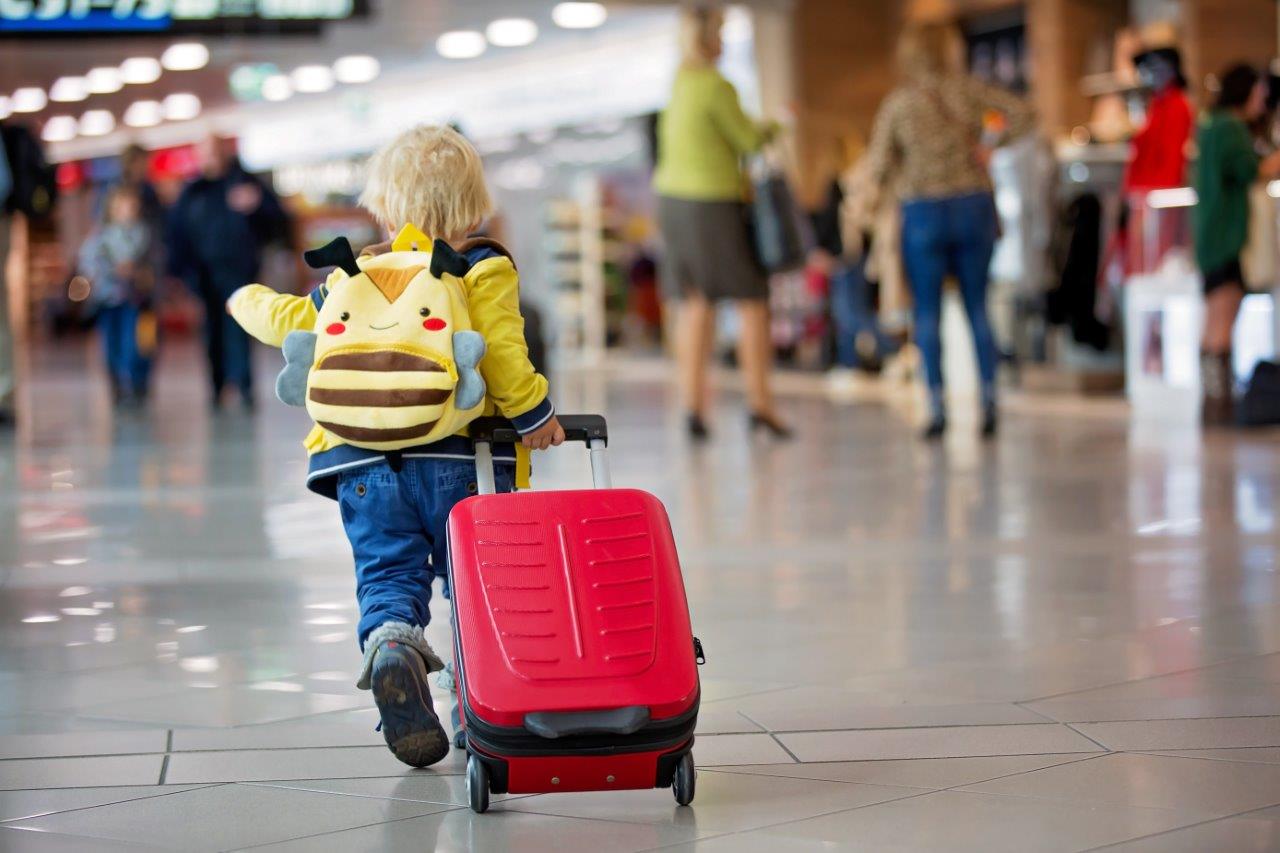
Teaching young children to carry their baggage is a great life skill
How else do Travellers A & B differ from each other?
Traveller A has to be at the airport 3 hours early for a domestic flight, B wants to arrive minutes before the flight cut off.
Most of the time, the need to arrive extra early is a result of anxiety, so if arriving early eases anxiety, go to the airport early. Travelling is stressful, especially as this post-Covid world opens up. Line ups at security will be longer, social distancing may continue to be a thing and proving vaccinations will inevitably cause delays. You need that extra time.
Have you ever arrived at the airport and realized you forgot your passport or your government ID has expired? I know someone who has and they were grateful they built in that extra time which allowed them to get home and back in time. Just barely. One of my favourite and most frequent travel companions is Traveller A in this scenario, and for years I tried to convince her that going early was a waste of time until she explained that for her, vacation starts the moment she hits the airport. I couldn’t argue with that logic because who doesn’t want an extra hour or two of vacation?
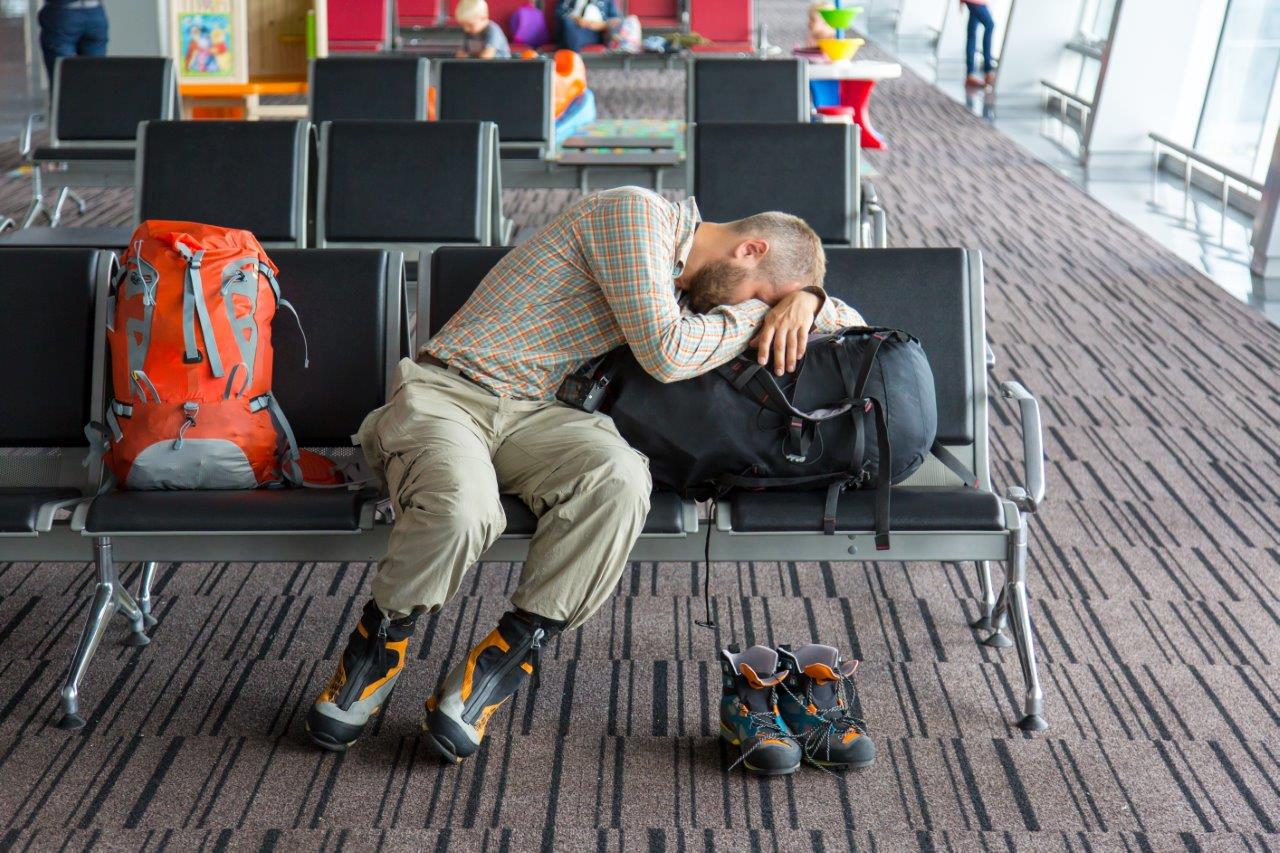
Can I just stay in the departure lounge a little longer?
A is also likely to be the first person in line when boarding is announced while B wants to be the last person to roll on the plane.
There is no clear winner in this situation but there is an easy compromise – do what you want. My husband is A in this situation and I am B. He wants to board early, claim overhead space and get comfortable. I want to wait for the last second, so I’m not cooped up in the plane any longer than necessary. I felt the same way when the kids were little and early boarding was an option. Sure, it’s easier to preboard and not worry about jostling other passengers, but then we had to contain the children longer in a small space rather than letting them stretch their legs in the departure lounge. Now we compromise – he boards earlier and gets his preferred overhead space, I come on later since I can live with leaving my bag anywhere and my purse under my seat.
The Traveller who always uses their full baggage allowance, and the Traveller who can pack for a month with just carry on.
An incredibly impatient traveller, I loathe waiting at the baggage carousel when I could be outside exploring my destination, so I’m a carry-on enthusiast. Naturally, I travel with people who check bags because they want to have extra clothing options or can’t be bothered to cart their bags around the airport (which I certainly appreciate).
My compromise? Carry-on only for short trips (2-3 days) or when travelling standby and checked baggage when:
- The duration of the trip is long or there is a red-eye flight involved.
- Sometimes for travelling for business – we often need several types of clothing for conferences with business, casual, and formal events.
- If I know I’ll be buying stuff to bring home. I frequently pack an extra carry on or duffle that I can check souvenirs, wine, or new clothing on the way home.
- Sports equipment – I always check a bag when I have equipment such as dive gear.
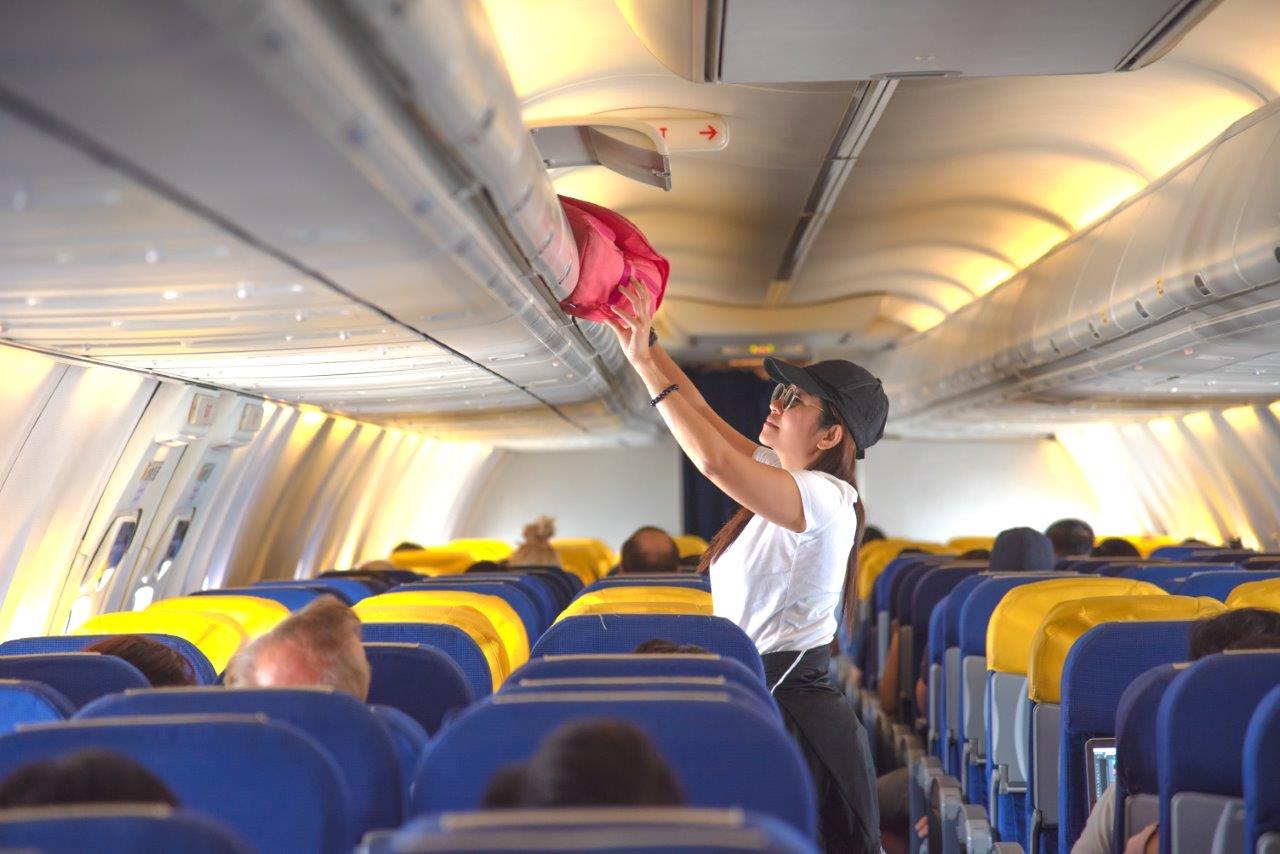
When you have to have carry on space right at your seat, its better to board early
That one person who has to hold all travel documents vs everyone else who just concedes.
Is it mom or dad in your family? There is always one that has to hold all the passports, the boarding passes, and a printout of the tickets, triple checking everything incessantly. I don’t even know how to reconcile this one aside from just letting them hold the documents if it makes them feel better. However, heed this cautionary tale. I have a friend whose mom had to hold all the documents which was fine until the day she switched purses and forgot her husband’s passport. Mom boarded the plane; dad caught a flight the next day at great expense. TikTok is also a treasure trove of “vacation dad mode” videos, like this one, showcasing this phenomenon.
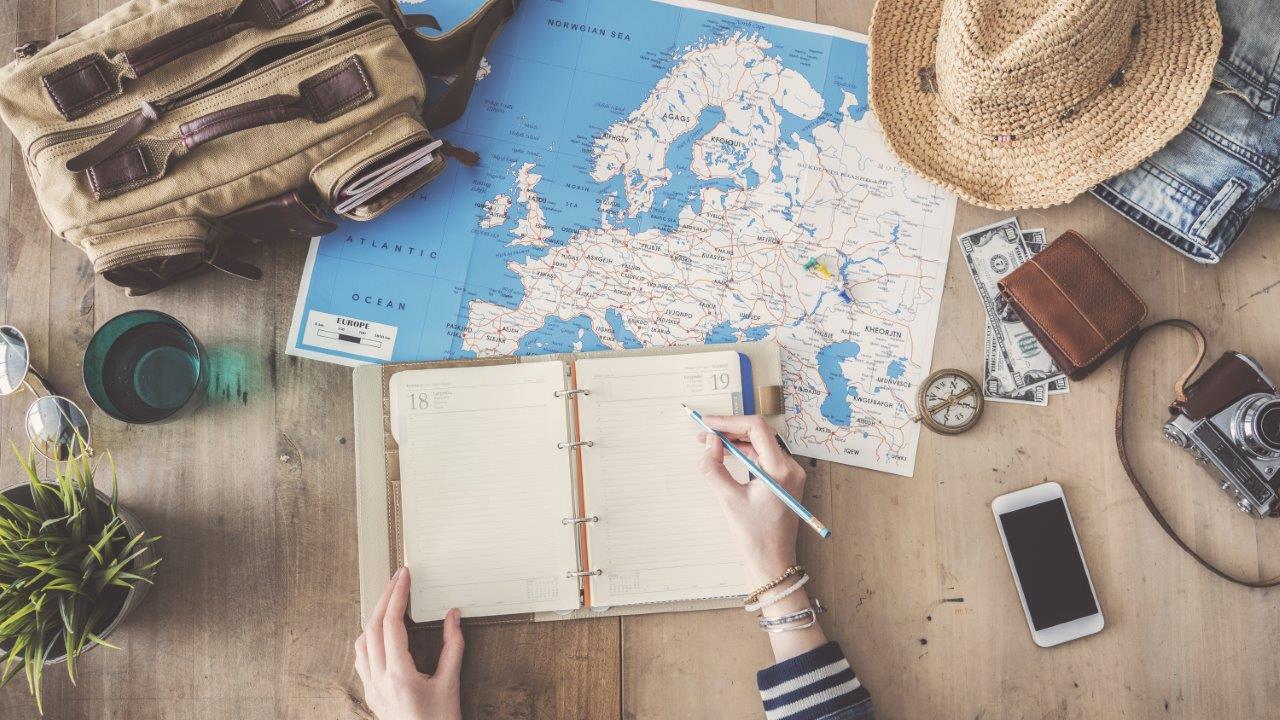
Planning, researching, itineraries are great, but so is spontaneity.
Traveller A meticulously researches the destination before the trip and plans excursions with military precision while Traveller B shows up not know what the local currency is and goes whatever direction seems most interesting.
Traveller A makes a good point – Research often helps make a trip go smoothly, (for example, so you can pre-order foreign currency at your bank) as does having a basic idea of attractions you want to see – however, there is a caveat! Those free-spirited B-types instinctively know that the best local experiences can happen when you let the destination guide you to beautiful and unexpected places. Having a plan is good; allowing yourself the space to divert from the plan can be magical.
On a trip to London with two girlfriends, we had certain items we wanted to tick off the list, and only 4 days to do it. I was the type A in this scenario and plotted a course for each day that allowed us to maximize our time in the city. But I also embraced my inner B type and gave us leeway to explore unexpected streets, visit unplanned locations, and take a breather when we were overwhelmed. A fine balance, this approach left us satisfied with what we accomplished yet excited to come back for more. And really, isn’t that what travel is all about?

